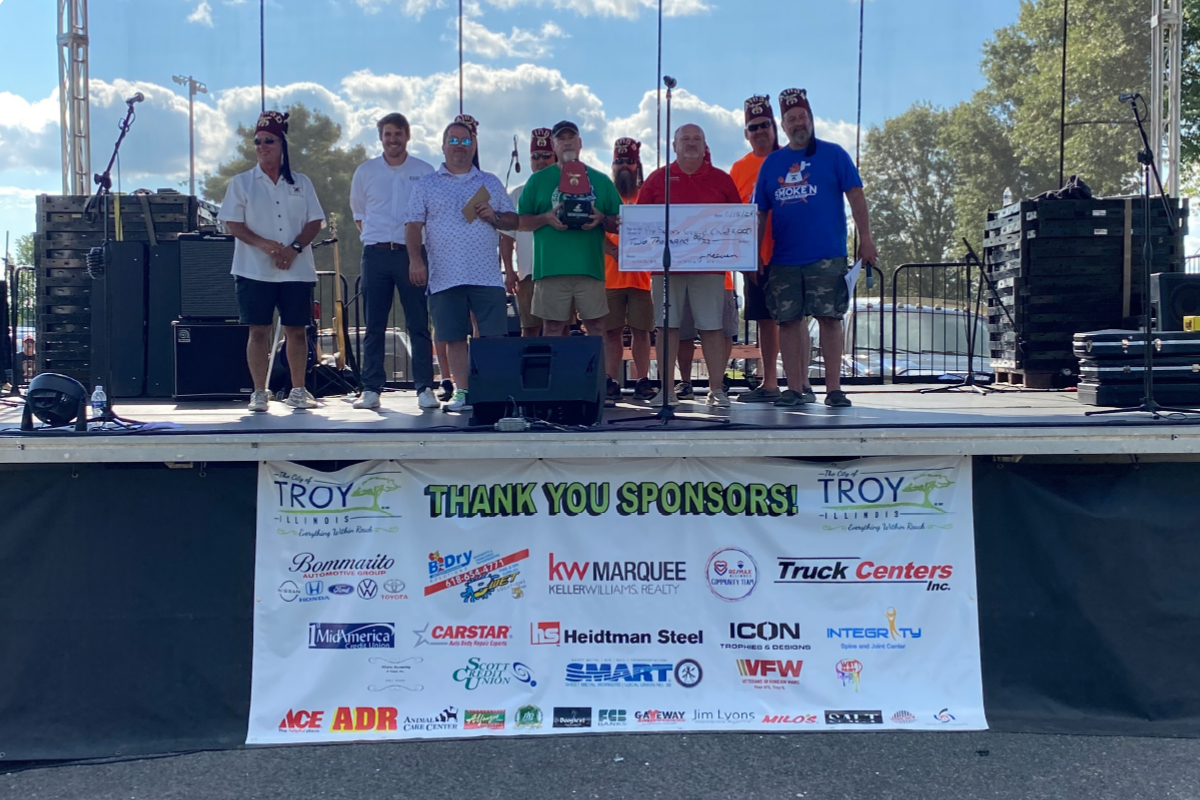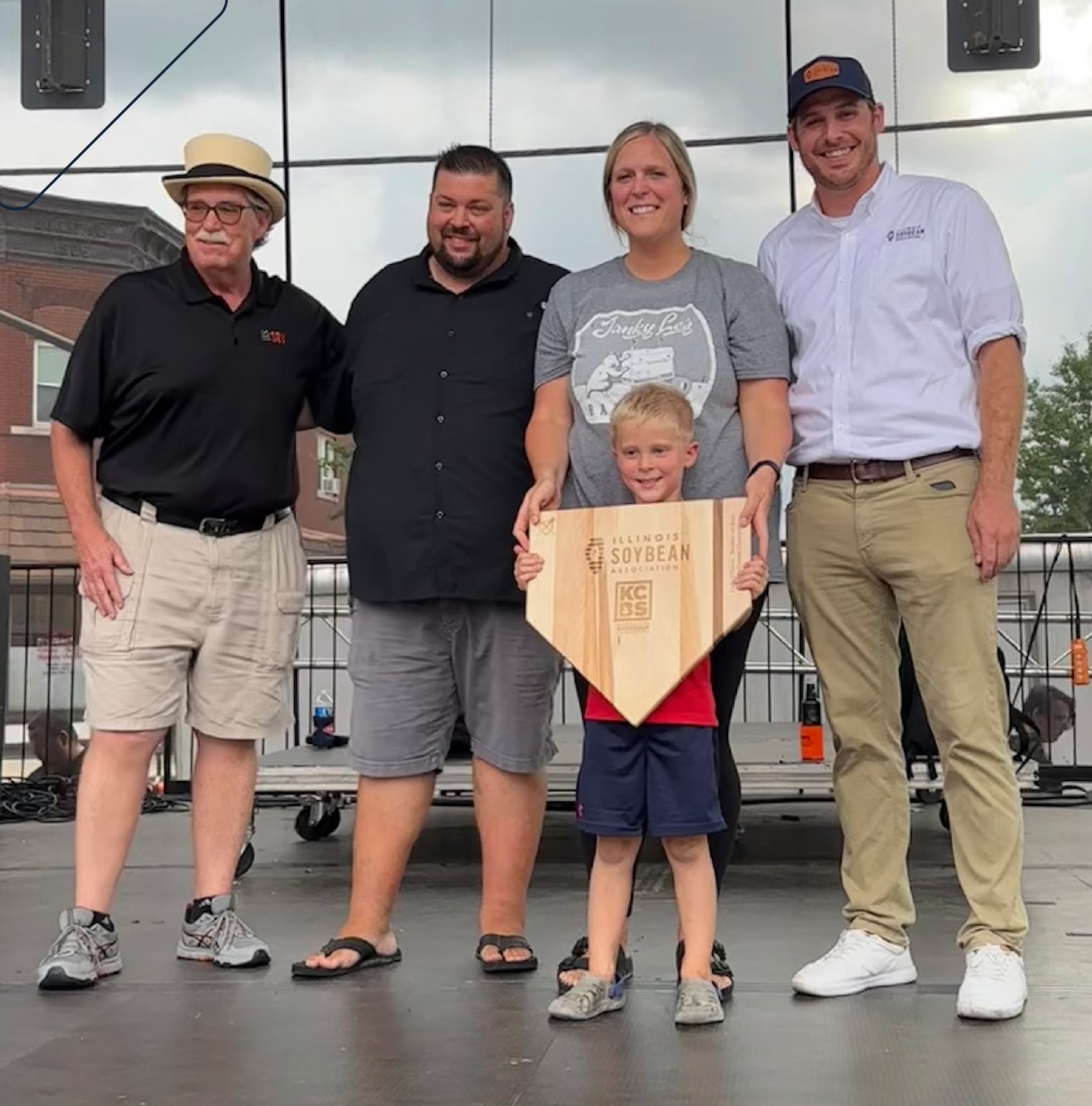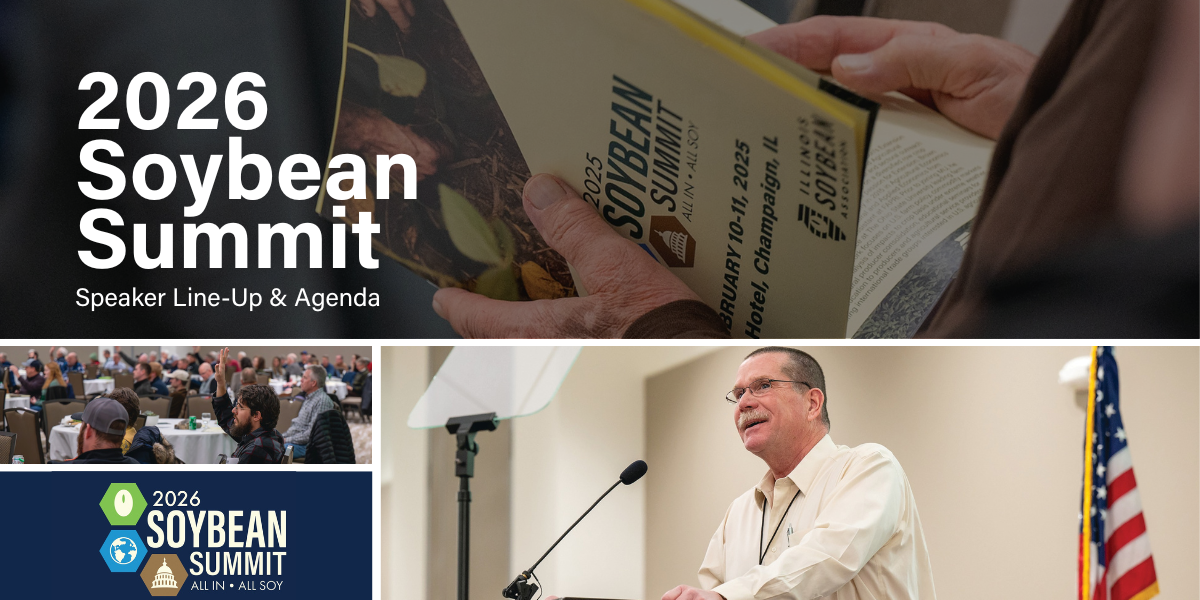By Olivia Key, Assistant Editor
This summer, the Illinois Soybean Association (ISA) partnered with the Kansas City Barbeque Society (KCBS) to present the Illinois Field of Beans BBQ Grand Slam, a four-part professional competition series that showcased the best of barbecue across the state. The events, held in Collinsville, Troy, Pierron, and Murphysboro, brought together professional barbecue teams that competed in three categories: chicken, pork, and ribs—all proteins that are produced on soy-based diets.
KCBS competitions are renowned worldwide, attracting thousands of pitmasters and barbecue enthusiasts each year. Founded in 1986, KCBS is the world’s largest barbecue organization, with over 16,000 members globally. The Field of Beans BBQ Grand Slam was a significant event for Illinois, offering a platform to not only celebrate top-notch barbecue but also to highlight the pivotal role that soybeans play in animal agriculture.
“With a majority of U.S. soybeans produced being used as a high-quality protein source for animal feed, it’s only fitting we sponsor Illinois’ premier barbecue competitions,” said ISA Domestic Markets Manager Tim Rendall.
Rendall, who spearheaded the competition series, says that the dedication and community involvement that radiated from the competitors, judges, and attendees was unlike any other. “KCBS events are more than just barbecue competitions; they’re a celebration of tradition, dedication, and community. Each pitmaster pours their heart and soul into every dish, while the camaraderie among competitors and the support from community members create a unique atmosphere where barbecue becomes more than food—it’s a shared experience that brings people together.”
The grand finale of the Illinois Field of Beans BBQ Grand Slam was held at the “Praise the Lard” BBQ Competition in Murphysboro on Sept. 21, where Triple H BBQ claimed victory, earning a $1,500 prize and a legendary blown glass apple trophy.
Animal agriculture is soy’s No. 1 customer, with swine and poultry being the top consumers. U.S. soybean meal is a vital component of feed, providing the essential protein and nutrients required for animal diets. As the demand for plant and animal protein continues to rise, U.S. soy is at the forefront, offering transparent and sustainable solutions for improved nutrition.
The nutritional benefits of soy are the primary driver behind its popularity among poultry and livestock producers. Packed with high-quality protein, essential amino acids, healthy fats, and a variety of vitamins and minerals, soybeans are a consistent and reliable feed option. This nutrient-dense package not only supports the growth and health of the animals but also enhances the quality of the meat, milk, and eggs they produce. By contributing to both animal welfare and product quality, soy plays a crucial role in the success of animal agriculture.
“The ISA Market Development team is deeply committed to supporting the animal agriculture industry, which relies on the high-quality, sustainable nutrition that U.S. soy provides,” said Rendall. “Our partnership with organizations like KCBS reflects our dedication to showcasing the vital role soy plays in feeding the animals that produce the foods we all enjoy. We’re proud to stand with the farmers and producers who work tirelessly to ensure a steady, nutritious food supply for consumers here at home and around the world.”
Your Illinois Soybean Association is dedicated to growing market opportunities for you, our Illinois farmers, who are the providers of sustainable, locally sourced, and high-protein soy products. Through events like the Illinois Field of Beans BBQ Grand Slam, ISA celebrates the vital connection between soy and animal agriculture.

Recent Articles
In this issue of Illinois Field & Bean Magazine, we're uncovering the top trends for agriculture in 2026.
By
Take a look at this year’s Soybean Summit agenda, which includes topics such as global trade impacts, the future of biodiesel, conservation strategies and what’s next for farm policy.
By IL Field & Bean Team

